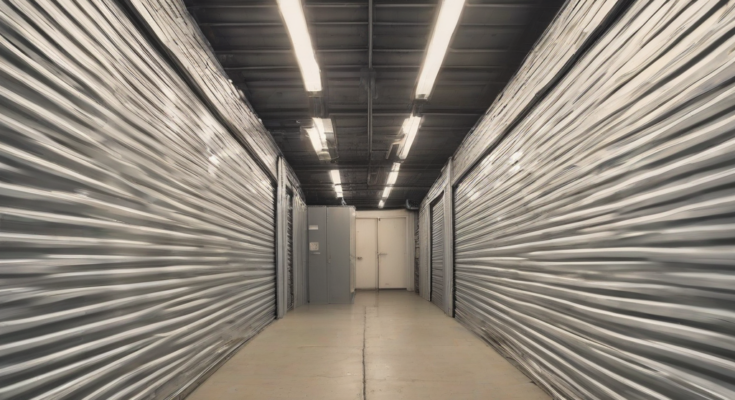Unlocking Brooklyn’s Storage Solutions: A Comprehensive Guide to Storage Units
Brooklyn, a borough brimming with vibrant culture and a dense population, often presents a unique challenge: storage space. Whether you’re decluttering your apartment, managing a business inventory, or navigating a life transition, finding the right storage unit in Brooklyn can make all the difference. This comprehensive guide dives deep into the world of Brooklyn storage, equipping you with the knowledge to make informed decisions and secure the perfect solution for your needs.
Understanding Your Storage Needs
- Size and Space Requirements: Before embarking on your search, accurately assess the amount of space you need. Measure your items carefully, considering furniture dimensions, boxes, and potential future storage needs. Overestimating is better than underestimating to avoid future headaches.
- Short-Term vs. Long-Term Storage: The duration of your storage needs significantly impacts the type of unit and pricing. Short-term rentals often come with higher per-month costs, while long-term contracts typically offer discounted rates. Consider your timeline carefully.
- Climate Control: Protecting sensitive items from temperature fluctuations and humidity is crucial. Climate-controlled units offer consistent conditions, safeguarding furniture, electronics, artwork, and other temperature-sensitive possessions. Consider whether climate control is a necessity for your belongings.
- Accessibility and Convenience: Factor in the accessibility of the storage facility. Proximity to your home or business reduces transportation hassles and makes accessing your belongings simpler. Consider drive-up accessibility for easy loading and unloading, especially for bulky items.
- Security Features: Security is paramount. Research facilities offering robust security measures, such as gated access, surveillance cameras, and on-site management. Inquire about insurance options offered by the facility or the need for your own insurance policy.
- Budget Considerations: Storage unit costs vary widely depending on size, location, amenities, and contract duration. Establish a realistic budget before beginning your search to avoid exceeding your financial limits.
Types of Storage Units in Brooklyn
- Indoor Units: These units provide the most protection from the elements and are generally preferred for climate-sensitive items or valuable possessions. They offer varying sizes to accommodate different needs.
- Outdoor Units: Typically more affordable than indoor units, these are suitable for storing less sensitive items like patio furniture or seasonal decorations. However, exposure to weather necessitates proper packaging and protection.
- Drive-Up Units: Offering convenient access for loading and unloading, these are ideal for bulky items or frequent access to your belongings. They typically cost more than standard indoor units.
- Climate-Controlled Units: Providing consistent temperature and humidity, these are essential for safeguarding sensitive items like electronics, documents, or artwork from damage. They command a premium over standard units.
- Specialty Units: Some facilities may offer specialized units for specific needs, such as vehicle storage, boat storage, or archive storage for documents and records.
Finding the Right Storage Facility in Brooklyn
Brooklyn’s diverse neighborhoods offer a range of storage options, each with its own advantages and disadvantages. Consider factors like proximity to public transportation, traffic congestion, and overall convenience when choosing a location. Online search engines and storage unit aggregators are invaluable resources, allowing you to compare prices, features, and locations across various facilities.
- Online Search Engines: Utilize platforms like Google, Bing, and Yelp to find storage facilities in your desired Brooklyn neighborhood. Read reviews and compare prices.
- Storage Unit Aggregators: Websites such as SpareFoot, Public Storage, and others aggregate listings from multiple facilities, making it easier to compare options and find the best deals.
- Local Recommendations: Ask friends, neighbors, or colleagues for recommendations on reliable and reputable storage facilities in Brooklyn.
- Directly Contact Facilities: Once you’ve identified potential facilities, contact them directly to inquire about availability, pricing, and specific features of their units.
- Visit Facilities in Person: Before signing a contract, visit the facility in person to assess its cleanliness, security, and overall condition. This allows you to get a feel for the place and ask any remaining questions.
Factors to Consider When Choosing a Facility
- Reputation and Reviews: Check online reviews on sites like Yelp, Google Reviews, and Better Business Bureau to gauge the facility’s reputation and customer satisfaction levels.
- Lease Terms and Conditions: Carefully read the lease agreement before signing, paying close attention to terms regarding payment, contract duration, early termination fees, and insurance requirements.
- Insurance Coverage: Understand the facility’s insurance policy and whether it covers your belongings in case of damage or loss. Consider purchasing additional insurance for valuable items.
- Accessibility and Hours of Operation: Ensure the facility’s hours of operation align with your schedule and that access is convenient for you.
- Security Measures: Inquire about security features such as gated access, surveillance cameras, and on-site personnel. Feel comfortable knowing your belongings are safe and secure.
- Cleanliness and Maintenance: A clean and well-maintained facility indicates responsible management and care for its tenants’ belongings.
- Customer Service: Evaluate the responsiveness and helpfulness of the facility’s staff. Good customer service can make a significant difference during your storage experience.
Moving and Packing Tips for Storage
Proper packing and moving techniques are essential to ensure the safe and efficient storage of your belongings. Taking the time to prepare your items correctly will prevent damage and make accessing them easier in the future.
- Declutter Before Storing: Take this opportunity to declutter and get rid of unwanted items. Only store items you truly need and plan to use in the future.
- Use Quality Packing Materials: Invest in sturdy boxes, packing tape, bubble wrap, and other packing materials to protect your belongings from damage during transport and storage.
- Label Boxes Clearly: Label each box with its contents and the room it belongs to. This will make unpacking much easier when you retrieve your items.
- Protect Fragile Items: Wrap fragile items individually in bubble wrap or packing peanuts and place them in sturdy boxes. Consider using additional padding to prevent shifting during transport.
- Stack Boxes Properly: Stack heavier boxes on the bottom and lighter boxes on top to prevent collapsing. Use appropriate packing techniques to prevent damage.
- Use Space Efficiently: Utilize vertical space in your storage unit by stacking boxes and using shelves or storage containers.
- Leave an Aisle for Access: Ensure there’s enough space to navigate your unit and access your belongings easily. Don’t overcrowd your storage unit.
Costs and Budgeting for Storage
Storage costs in Brooklyn vary greatly depending on the size of the unit, location, amenities, and lease term. Understanding the pricing structure and budgeting accordingly is critical. Many facilities offer promotional discounts or special offers, so be sure to inquire about those possibilities.
- Size of Unit: The larger the unit, the higher the cost will be. Choose the smallest unit that accommodates your needs to save money.
- Location: Units in prime locations tend to be more expensive than those in less accessible areas.
- Amenities: Climate-controlled units, drive-up access, and enhanced security features increase the cost.
- Lease Term: Longer lease terms typically result in lower monthly rates.
- Insurance: Consider the cost of insurance coverage for your belongings. Some facilities require insurance, while others offer it as an optional add-on.
- Administrative Fees: Some facilities charge administrative fees or other additional charges. Understand all the associated costs before committing.
Legal Aspects and Contractual Agreements
Before signing a storage unit contract, meticulously review all terms and conditions to avoid misunderstandings or disputes. Pay close attention to clauses regarding payment, lease duration, early termination fees, and liability for damages.
- Lease Agreement: Read the lease agreement carefully and ensure you understand all the terms and conditions.
- Payment Terms: Clarify the payment methods, due dates, and consequences of late payments.
- Lease Duration: Understand the minimum lease term and any penalties for early termination.
- Liability and Insurance: Review the facility’s liability for damage or loss of your belongings, and clarify your insurance responsibilities.
- Access and Hours of Operation: Confirm the facility’s hours of operation and procedures for accessing your unit.
- Dispute Resolution: Understand the process for resolving any disputes or disagreements with the facility.


